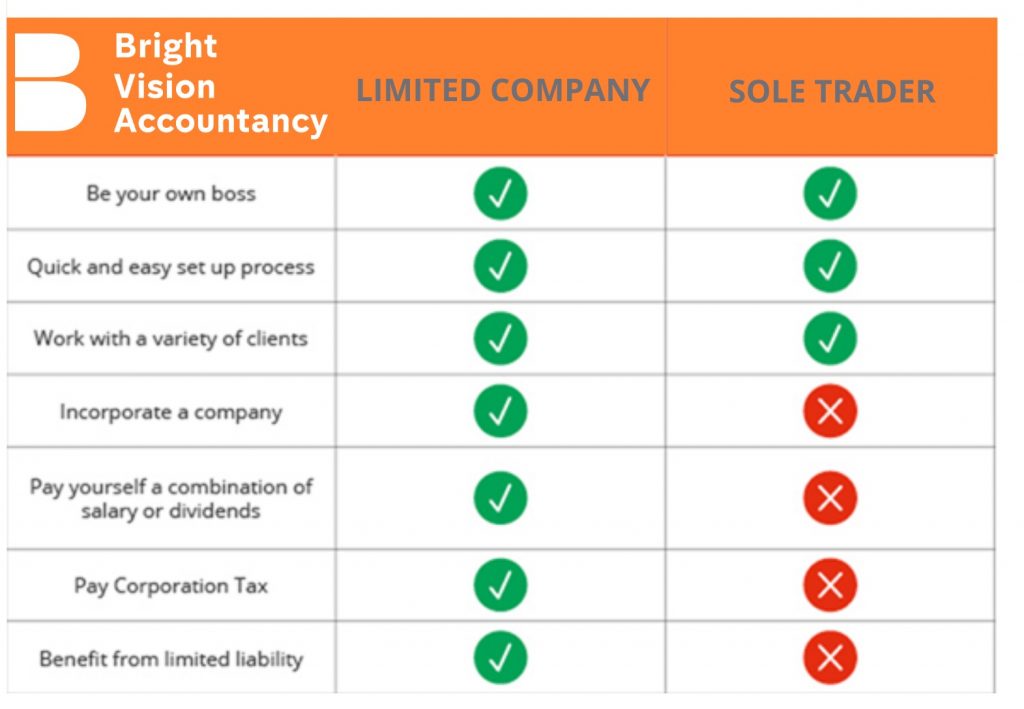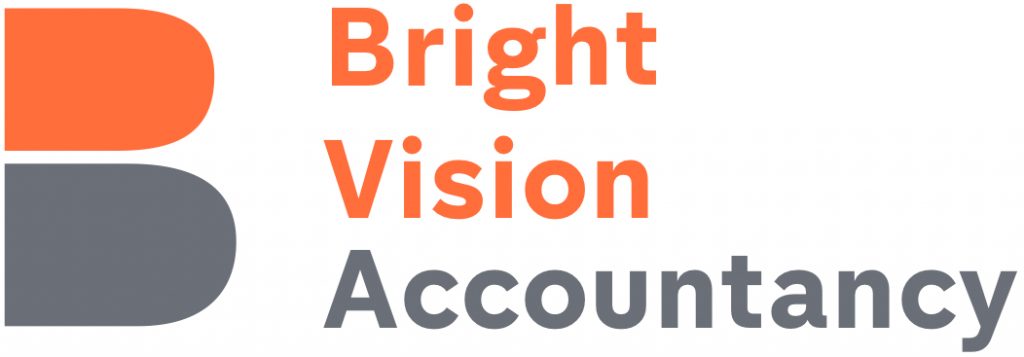Choosing the right Business Vehicle
If you own your business the day to day running will likely be the same regardless of whether you are a sole trader or a sole director of a limited company.
There are however some distinct differences between these two types of business vehicles which should be kept in mind when starting your business and reassessed as the business grows and develops.
In this article I outline the key considerations between running a business as a Sole trader V’s as a Director of a limited company. These include the legal responsibilities posed on business owners, tax efficiency considerations along with the importance of planning for your business and ensuring that the business set up you are using will best support all potential outcomes.
Key Distinction
The main difference between the 2 arrangements is how they are viewed from a legal perspective.
In a Sole Trader arrangement, the business owner and the business are seen as one.
Therefore, tax and reporting obligations cover both the business and the individual together. Accounts and hence tax reporting will be completed in line with the tax year end 5th April and all profits/losses of the business will be included on an individual’s self-assessment tax return along with any other personal gains or losses.
In a Limited Company the company and its owners (i.e. directors) are seen as separate entities and as such both have separate reporting obligations. The company will be responsible for preparing and filing accounts along with a corporation tax return. Accounts are produced to a year end date (usually anniversary of the set-up date) and must be filed 9 months after the year end.
The directors (even if only 1) may be required to file their own separate tax return to account for tax on their income depending on how they have chosen to extract funds from the company. Unlike sole traders’ directors have a choice in how to pay themselves and may take a combination of salary and dividends so as to be as tax efficient as possible.
It is this identification and separation of the company from the directors that gives rise to the key difference and main advantage of having a limited company – Limited Liability.
Limited Liability – means that when you enter into agreements for your business (i.e. as the company) any risks taken are owed only by the company. And the only personal risk to directors is the amount that they have invested in the company.
For example if you had a limited company that met with financial difficulty and it owed the bank or creditors money your personal assets such as your house, car etc would be deemed as separate and you would not have to give these up to settle the debt.
This is opposite in a sole trader or partnership. In these business types the owners are the business and their personal assets are included in the value that can be given to creditors/banks if the business cannot meet its obligations.
The benefit of limited liability is a key reason many people set up a company.
Other similarities and differences between sole traders and limited companies are shown below:

Often clients are surprised to hear that setting up a limited company is a quick and easy process. The application can be completed online and if you have all the information to hand and pay a nominal fee the company can be established immediately or within a few days at most.
Given this and the attraction of limited liability you may ask why do all business not just use limited companies?
The main reasons for this are:
- Directors responsibilities may bring increased cost – as a director you are accepting the director’s duties as outlined in the companies act and are responsible for ensuring the company meets all obligations. This may mean increased resource and/or professional fee costs to ensure accounts, tax returns, record keeping etc are all up to date and accurate.
- Lack of knowledge on the potential tax efficiencies of extracting funds from a limited company v’s sole trader. As I mentioned before sole traders are taxed on all profits of the business while directors can choose how much of the profits after tax they want to take out of the company and leave any remaining. The value to take out will need to be assessed in line with any other income but usually takes the form of a combination of salary, dividend, and pensions. Again, this may give rise to fees but can offer more options for tax planning and mitigation that a pure sole trader arrangement.
- Lack of clarity around business succession – Finally when choosing your business vehicle it is important to think through the ownership structure, how this may change over time and ultimately how you see the businesses ending – do you intend to sell, pass it on to a family member or dissolve in the future. Each option will have tax implications on both the new and existing owners that vary depending on the business set up arrangement. As you would expect any transition or change works best when there has been advance planning and consideration.
IR35
Finally, a topical area that may deter sole directors is IR35.
IR35 is anti-avoidance legislation which evaluates if a workers relationship with a client is such that if they had they been paid directly they would be employees of the client i.e. given the nature of work, hours of work responsibility, benefits etc. If this is the case HMRC enforce that this relationship is taxed as if the contractor/director was an employee, and tax and NI deducted at source
This is currently only in force in the public sector in the UK but is due to come into the private sector April 2021, having been deferred from the current year due to Coronavirus. It is a hot topic and important for those contracting through their limited company to check that they are not operating incorrectly – there is a government online checker at:
https://www.gov.uk/guidance/check-employment-status-for-tax
CONCLUSION
There is no ideal business model for all businesses. Many factors need to be considered when setting up a business and the right business model is one that takes into account how the owners want it to work, how they see the business developing and ensures they will have the options and choices available as the business progresses.
Seeking advice on the practical considerations and tax implications before starting a business can save hassle down the line and prevent you from needing to change or amend your business vehicle.
Once you are clear on which category is right for you see our article on what you need to register your business.
